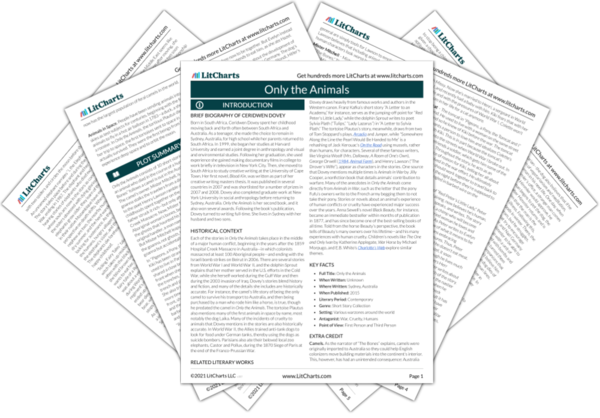Here, Hazel makes the case that hunger is a powerful equalizer. During wartime, when both people and animals starve due to strict rations and dwindling resources, humans and animals don’t seem so different from each other. And as far as Hazel is concerned, it’s also true that they’re all going to die—and it doesn’t seem to matter how, exactly, unless they essentially choose to die. That choice, she suggests, is what makes her more human than other animals. Hoping humans will eat her, though, speaks to how badly she’s suffering now. To her, it’s preferable to die and feel warm than to stay alive and cold.
